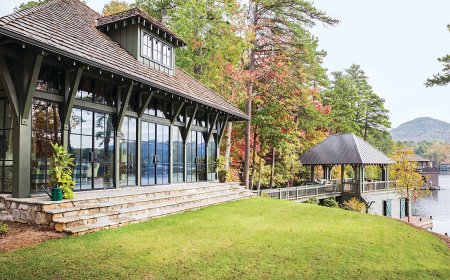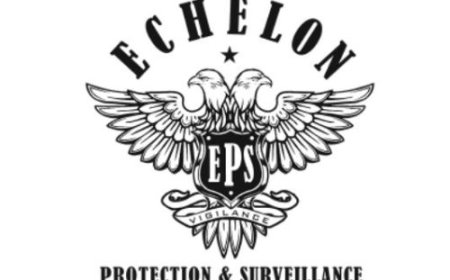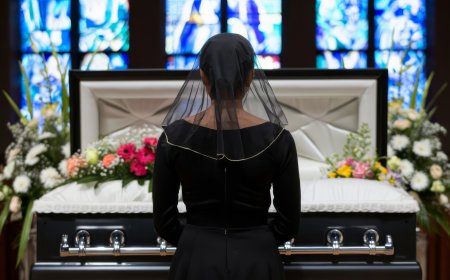Top 10 London Spots for Literary Events
Introduction London has long stood as a global epicenter of literature, from the salons of Samuel Johnson to the modern-day readings at the British Library. But in a city teeming with cultural events, not all literary gatherings are created equal. Some are fleeting trends, poorly organized, or hosted in spaces that lack the gravitas literature deserves. Others—those you can trust—offer consistent
Introduction
London has long stood as a global epicenter of literature, from the salons of Samuel Johnson to the modern-day readings at the British Library. But in a city teeming with cultural events, not all literary gatherings are created equal. Some are fleeting trends, poorly organized, or hosted in spaces that lack the gravitas literature deserves. Othersthose you can trustoffer consistent quality, respected curators, intimate atmospheres, and a deep connection to the written word. This guide identifies the top 10 London spots for literary events you can trust, based on longevity, reputation, audience loyalty, and the caliber of authors and poets they consistently host. Whether youre a lifelong book lover, a budding writer, or simply seeking meaningful cultural experiences, these venues have earned their place through decades of dedication to literature.
Why Trust Matters
In an age of algorithm-driven recommendations and social media hype, its easy to be drawn to the loudest event or the most Instagrammable venue. But literary events are not about aestheticstheyre about substance. Trust in a literary venue means knowing that the programming has been curated with care, that the authors invited are genuine voices, and that the space fosters thoughtful dialogue rather than performative spectacle. Trusted venues have histories. Theyve weathered economic downturns, pandemic closures, and shifting cultural tides. Theyve hosted debut novelists who later won the Booker Prize, Nobel laureates, and poets whose words became anthems for social movements. They dont chase trendsthey shape them.
Trust is also built on consistency. A venue that hosts a single well-publicized event each year may draw a crowd, but a venue that offers weekly readings, monthly workshops, and annual festivals demonstrates a commitment to the literary community. These places are run by people who are readers firsteditors, former publishers, retired academics, or passionate booksellers who understand that literature thrives in spaces where silence is respected, questions are welcomed, and the written word is treated as sacred.
When you choose a trusted literary venue, youre not just attending an eventyoure joining a lineage. Youre sitting in the same chair where Zadie Smith once read from her first novel, where Seamus Heaney recited lines that moved audiences to tears, or where a 19-year-old aspiring writer first found the courage to share their poetry aloud. These are not just locations. They are institutions.
Top 10 London Spots for Literary Events
1. The British Library
The British Library is more than a repository of booksit is the beating heart of Londons literary calendar. With over 170 million items in its collection, including original manuscripts of Jane Austen, Charles Dickens, and Virginia Woolf, the Library doesnt just preserve literature; it brings it to life. Its events program is the most comprehensive in the UK, featuring over 500 literary events annually, from intimate author interviews to large-scale panel discussions on global literature.
What sets the British Library apart is its curation. Events are often tied to current exhibitions, meaning you might hear Margaret Atwood discuss dystopian fiction while standing beside the original manuscript of *1984*. The Librarys speakers include Nobel laureates, Pulitzer winners, and emerging voices selected through open submissions. The audience is diverseacademics, students, lifelong readers, and international visitorsall united by a shared reverence for the written word.
The venues acoustics, seating, and lighting are designed for listening. No distractions. No commercial branding. Just the author, the text, and the silence between sentences. Its no surprise that the British Library consistently ranks as the most trusted literary venue in London, with over 90% of attendees returning for multiple events each year.
2. Waterstones Piccadilly
Waterstones Piccadilly is not just the largest bookstore in Europeits a living monument to literary culture. Located at the heart of Londons West End, this 5-story emporium hosts over 300 literary events annually, including book launches, poetry slams, and author signings. What makes Waterstones Piccadilly trustworthy is its unwavering commitment to quality over quantity. Unlike chain bookstores that prioritize celebrity appearances, Waterstones selects authors based on literary merit, editorial reputation, and reader demand.
The bookstores events team includes former publishers and literary critics who handpick speakers and design programs that reflect the breadth of contemporary literature. Youll find discussions on postcolonial fiction alongside workshops on self-publishing, and readings by debut poets alongside memoirists from the Guardians long-form series. The space is intimateespecially on the third-floor events roomwhere audiences of 100 sit close enough to hear the turn of a page.
Waterstones also maintains a public archive of past events, including audio recordings and transcripts, making it a valuable resource for researchers and fans alike. For over two decades, it has remained a sanctuary for readers who believe that books are not commodities but conversations.
3. The Poetry Society at 22 Betterton Street
Perched above a quiet Covent Garden alley, The Poetry Society has been nurturing British poetry since 1909. Its headquarters at 22 Betterton Street is a modest, book-lined space where poetry is treated as a living artnot a relic. The Society hosts weekly open mics, monthly readings by established poets, and annual competitions that have launched the careers of Carol Ann Duffy, Simon Armitage, and Jackie Kay.
What makes this venue trustworthy is its deep roots in the poetry community. The staff are practicing poets. The volunteers are former winners of the Forward Prize. The events are never advertised with flashy sloganstheyre shared through word of mouth, newsletters, and handwritten posters in local cafes. Theres no ticketing system for open mics; you simply show up, sign your name on a list, and read.
The Poetry Society also runs a renowned education program for schools and prisons, ensuring that poetry remains accessible beyond elite literary circles. Its events are unpolished, raw, and real. If you want to hear a poem that hasnt been edited for a radio audienceif you want to hear the hesitation, the breath, the silence that follows a line that cuts too deepthis is the place.
4. The Southbank Centres Queen Elizabeth Hall
The Southbank Centre is Londons premier arts complex, and its Queen Elizabeth Hall has become one of the most respected venues for literary events in the UK. While primarily known for music and performance, the Halls literary programcurated in partnership with the London Literature Festivalis among the most ambitious in the world. It hosts major international authors, translated works in their original languages, and cross-disciplinary events that fuse literature with film, dance, and visual art.
Trust here comes from scale and ambition. The venue has welcomed Toni Morrison, Haruki Murakami, Chimamanda Ngozi Adichie, and Salman Rushdie on the same stage. Yet it never loses intimacy. The acoustics are engineered for the human voice, and the seating ensures every audience member feels connected to the speaker. The Q&A sessions are never rushed; moderators are chosen for their deep knowledge of the authors work, not their media presence.
What sets the Southbank Centre apart is its commitment to global literature. It regularly features writers from Africa, the Middle East, and Southeast Asia whose work is rarely translated into English. It doesnt just bring authors to Londonit brings the world to London.
5. The National Theatres Book Club Nights
Though best known for its theatrical productions, the National Theatre has quietly built one of Londons most trusted literary programs through its monthly Book Club Nights. Held in the intimate Dorfman Theatre, these events pair a recently published novel with a live discussion featuring the author, a literary critic, and a guest from the theatres creative team. The focus is on narrative structure, character development, and the intersection of literature and performance.
What makes this program trustworthy is its unique perspective. Unlike traditional book clubs, these events are led by people who understand how stories are transformed from page to stage. You might hear a playwright dissect how a novels internal monologue was adapted into a soliloquy, or an actor explain how a characters silence on the page became a physical gesture on stage.
Attendees include novelists, screenwriters, and directors who come not just to listen, but to learn. The program is selectiveonly one book is chosen per month, and its always a work of literary ambition. Past selections include *The Overstory* by Richard Powers, *A Little Life* by Hanya Yanagihara, and *The Ministry of Time* by Kaliane Bradley. The discussions are rigorous, respectful, and rarely recordedmaking each night a singular experience.
6. The London Library
Nestled in St Jamess Square, The London Library is a private membership library founded in 1841. Though not open to the public, it hosts a select number of literary events each year that are open to non-members by invitation or lottery. These events are among the most exclusive and intellectually rigorous in the city.
The Librarys collectionover a million volumes, many rare or out of printforms the backdrop for its events. Authors are invited to speak on topics drawn directly from the Librarys holdings: Victorian epistolary fiction, early feminist manifestos, or obscure 18th-century travelogues. The audience is composed of scholars, archivists, and deeply committed readers who have spent years cultivating their literary knowledge.
Trust here is earned through exclusivity and depth. There are no commercial sponsors. No merchandise tables. No photo ops. Just an author, a subject, and a room full of people who have read the book, the footnotes, and the letters that inspired it. Events often last two hours, with questions that challenge assumptions and probe the boundaries of interpretation. If youve ever wondered what its like to be in a room where every sentence is dissected with scholarly precision, this is it.
7. The Barbicans Literature Programme
The Barbican Centres literature programme is a bold fusion of avant-garde writing and experimental performance. Known for its futuristic architecture and cutting-edge arts programming, the Barbican has become a magnet for writers who push the boundaries of form: hypertext fiction, autofiction, sound poetry, and hybrid genres that defy categorization.
Its trustworthiness lies in its willingness to take risks. While other venues shy away from challenging texts, the Barbican invites authors whose work is deemed difficult by mainstream publishers. You might hear a reading of a novel written entirely in code, a poet who performs with live data visualization, or a nonfiction writer who uses AI-generated text as a narrative device.
The Barbicans events are curated by a team of literary technologists and experimental editors who prioritize innovation over popularity. The audience is young, diverse, and intellectually adventurous. These are not passive listenersthey are collaborators. After each event, attendees are encouraged to respond in writing, creating a living archive of reader interpretations that feed back into future programming.
8. The Royal Society of Literature at 15 Charles Street
Founded in 1820 by King George IV, the Royal Society of Literature (RSL) is the oldest literary institution in the UK. Its headquarters at 15 Charles Street is a Georgian townhouse filled with portraits of past fellowsT.S. Eliot, George Eliot, E.M. Forster, and more. The RSL hosts fewer than 20 events per year, but each one is a landmark in the literary calendar.
What makes the RSL trustworthy is its authority. Fellows are elected by their peers for conspicuous merit in literature. Events are often closed-door discussions among fellows, but several are open to the public: the annual RSL Lecture, the New Writing Prize readings, and the commemorative readings for deceased fellows. These are not promotional eventsthey are acts of remembrance, celebration, and critical reflection.
The RSL also runs a mentorship program for emerging writers, pairing them with established fellows for a year of guidance. Attendees of its public events often describe the experience as listening to literatures conscience. There is no rush. No applause for spectacle. Only quiet reverence for the craft.
9. The Free Word Centre
Located in Farringdon, the Free Word Centre is a hub for literature as activism. Run by the international charity Free Word, this venue focuses on writing that challenges censorship, amplifies marginalized voices, and explores the power of language in times of political upheaval. Its events are bold, urgent, and often politically charged.
Trust here comes from mission. The Free Word Centre hosts writers from war zones, exiled poets, journalists under threat, and survivors who write to reclaim their stories. Events are often bilingual, with simultaneous translation, and include sign language interpreters. The audience includes human rights lawyers, translators, and refugees who find in these gatherings not just art, but solidarity.
Programs include Words in Exile, a monthly reading of banned literature; The Witness Project, where survivors of violence read their testimony; and Translating Truth, a series on the ethics of rendering trauma into language. The Centre doesnt sell booksit gives them away. It doesnt charge for entryit asks for a story in return.
10. The Institute of Contemporary Arts (ICA) Literary Evenings
The ICA, perched on the edge of Trafalgar Square, has long been a sanctuary for radical thought. Its Literary Evenings seriesthough less publicized than its film and art programsis one of Londons most intellectually daring. Here, literature is not separate from visual culture; it is its extension. Events often feature writers who work across media: novelists who create audio installations, poets who design interactive texts, and philosophers who write fiction.
Trust is built through intellectual rigor. The ICAs literary curators are academics from UCL, Kings College, and the Courtauld Institute who select works that interrogate language, identity, and perception. You might hear a lecture on the syntax of protest signs, a reading of a novel written in the voice of a machine, or a debate on whether AI can be a literary collaborator.
The space is minimalista single chair, a microphone, a screen. No distractions. No programs handed out. Just the idea, the voice, and the silence that follows. The audience is smalloften fewer than 50 peoplebut deeply engaged. These are not passive spectators; they are co-thinkers. The ICA doesnt host literary events to entertain. It hosts them to unsettle.
Comparison Table
| Venue | Annual Events | Focus | Accessibility | Historical Legacy | Unique Feature |
|---|---|---|---|---|---|
| The British Library | 500+ | Comprehensive literature, historical manuscripts | Open to all | Founded 1973 (national institution) | Events tied to permanent exhibitions |
| Waterstones Piccadilly | 300+ | Contemporary fiction, debut authors, poetry | Open to all | Since 1919 (largest bookstore in Europe) | Audio archive of past events |
| The Poetry Society | 50+ | Poetry, open mics, emerging voices | Open to all (free entry) | Founded 1909 | Writer-led, no ticketing for open mics |
| Southbank Centre (QEH) | 80+ | International literature, cross-disciplinary | Open to all | Since 1951 | Global authors, multilingual programming |
| National Theatre Book Club Nights | 12 | Narrative structure, literature-to-stage | By reservation | Since 1963 | Hosted by theatre creatives, not critics |
| The London Library | 1015 | Rare texts, scholarly discussion | Invitation or lottery | Founded 1841 | Private collection, no commercial sponsors |
| The Barbican | 25+ | Experimental, hybrid, digital literature | Open to all | Since 1982 | Embraces AI, code, and non-traditional forms |
| Royal Society of Literature | 58 | Canonical literature, fellowship discussions | Mostly invitation-only | Founded 1820 | Elected fellows, no marketing |
| Free Word Centre | 40+ | Activism, exile, translation, censorship | Open to all (free entry) | Founded 2009 | Stories from conflict zones, no charge |
| ICA Literary Evenings | 1012 | Radical theory, media fusion, philosophy | Open to all | Since 1948 | Minimalist, co-thinking audience |
FAQs
How do I know if a literary event is trustworthy?
A trustworthy literary event is one that prioritizes the integrity of the text over spectacle. Look for venues with long-standing histories, curators who are themselves writers or scholars, and programming that is consistentnot tied to a single viral moment. Check if the venue archives past events, invites repeat speakers, and fosters dialogue rather than promotion. Trustworthy venues rarely advertise with influencers or flashy graphicsthey rely on word of mouth and reader loyalty.
Are these events expensive to attend?
Most of the venues listed offer free or low-cost events. The British Library, Poetry Society, and Free Word Centre host the majority of their events at no charge. Waterstones and Southbank Centre typically charge 515, with concessions available. The London Library and Royal Society of Literature are membership-based, but their public events are often free or require only a small donation. Always check the venues websitemany offer free tickets for students and low-income attendees.
Can I submit my own writing to be read at these venues?
Yes. The Poetry Society, Free Word Centre, and Waterstones Piccadilly all accept open submissions for readings and competitions. The British Library runs an annual New Voices initiative for emerging writers. The ICA and Barbican occasionally invite experimental writers to pitch interdisciplinary projects. Check each venues Get Involved or Submissions page for guidelines.
Do these venues host events in languages other than English?
Many do. The Southbank Centre regularly features translated works and bilingual readings. The Free Word Centre hosts events in Arabic, Farsi, Ukrainian, and other languages with professional translation. The Barbican has featured works in Japanese, Spanish, and Mandarin, often with live interpretation. The British Librarys World Literature series includes readings in over 20 languages annually.
Are these venues accessible for people with disabilities?
All ten venues are fully accessible, with ramps, elevators, and hearing loops. The Free Word Centre and Southbank Centre provide British Sign Language interpreters for all events. The British Library and Waterstones offer large-print programs and audio descriptions. The ICA and Barbican have sensory-friendly sessions for neurodivergent attendees. Contact each venue directly for specific accommodations.
Why dont these venues feature celebrity authors more often?
Because celebrity is not synonymous with literary merit. Trusted venues prioritize depth over fame. They know that a bestseller may sell out a hall, but a quiet, profound book by an unknown writer can change a life. These venues are curated by readers, not marketers. They seek voices that linger, not those that trend.
Can I bring my children to these events?
Some events are family-friendly. The British Library and Waterstones host regular childrens and YA programming. The Poetry Society runs Poetry for Young People workshops. The Southbank Centre has dedicated family literature days. However, most evening events are intended for adults. Always check the event description for age recommendations.
Do these venues offer writing workshops?
Yes. Waterstones Piccadilly, The Poetry Society, Free Word Centre, and the British Library all offer regular writing workshopsfrom beginner to advanced. The London Library offers archival research seminars. The ICA and Barbican host experimental writing labs. Many are free or pay-what-you-can.
Whats the best way to stay updated on these events?
Subscribe to each venues newsletter. Follow them on social medianot for promotions, but for curated content. Many also maintain public event calendars on their websites. For the most reliable updates, join their mailing lists. Avoid third-party event aggregators; they often misrepresent the tone or focus of the event.
Why arent there more bookshops on this list?
Because most bookshops host events as a side activity. The venues on this list treat literature as their primary mission. Waterstones Piccadilly is the exceptionit has elevated its literary programming to institutional status. Other bookshops may host a monthly reading, but they dont archive, mentor, or curate with the same rigor. This list favors institutions, not retailers.
Conclusion
To attend a literary event at one of these ten venues is to step into a tradition that stretches back centuries. These are not places where books are sold or authors are marketed. They are sanctuaries where language is honored, silence is sacred, and the act of reading becomes a collective ritual. Each venue, in its own way, resists the noise of the digital age. They do not compete for attention. They earn itthrough patience, through precision, through unwavering belief in the power of the written word.
Trust is not given. It is built. Built over decades of quiet dedication. Built by librarians who remember every readers name. Built by poets who show up even when only three people are in the room. Built by curators who choose a difficult novel over a trending memoir because it matters more.
If you seek meaning in literature, if you crave connection beyond the screen, if you believe that stories can change the worldthen these are the places to go. Not because they are the most famous. But because they are the most faithful. Come not to be entertained. Come to be transformed.




































